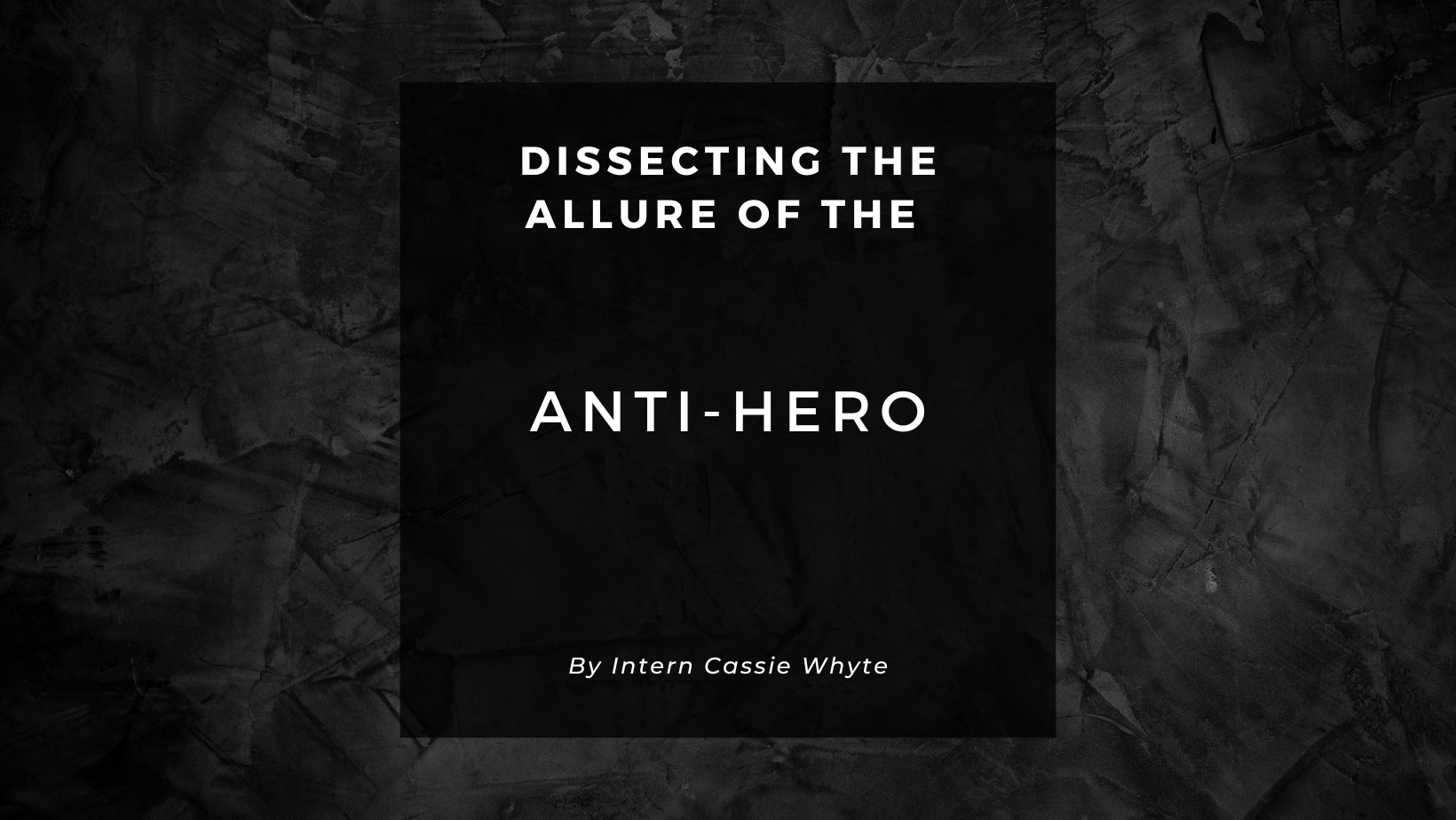By: Cassie Whyte, 2023 Summer Intern
A good way to gain insight into the zeitgeist of an era is by examining popular archetypes and tropes that are pervasive throughout various media of the time. In the late 90’s through the mid 2000’s, prestige television reigned supreme as the most culturally entrenched medium.
And three of the most defining series of this time: The Sopranos, Breaking Bad, and Mad Men, all featured an archetype that is simultaneously ancient and esoteric, as well as postmodern and transgressive: The American Male Anti-Hero.
So who is He, in what ways is He a reiterative conductor of mytho-masculinist philosophy, and in what ways is he in diametrical opposition to traditional gender roles? And why are we all so obsessed with Him and sympathetic to his plethora of problems?
Context on the Anti-Hero:
Before delving into who the Anti-Hero is and why he is so comprehensively adored by young men, it is necessary to contextualize the conditions in which He rose to socio-cultural prominence and desirability. Since the advent of the sexual revolution and its ideological predecessors of early progressivism and suffragettism, men have felt increasingly disenfranchised and frankly, their very personhood, unnecessary.
Historically speaking, ideals of masculinity have been defined by a paternalistic protectorship toward women in which men are produced as benevolent patriarchs. While this hierarchical formation ascribed a certain unflinching value to manhood—safeguarding the colloquially vulnerable and delicate Feminine—it also resulted in a sort of disposable outlook toward men. And in the hyper-civilized, sedimentary society of 21st century America, men are overwhelmingly not needed to physically protect women.
Boys watch movies with superheroes and soldiers and vigilante rescuers of damsels in distress to the extent that the vast majority of men confess to daydreaming themselves in savior-fantasies. But life is less violent, which is an unequivocally positive change, and we do not need warriors anymore.
But we do need men.
As prominent Anti-Hero Tyler Durden of Fight Club puts it:
“We’re the middle children of history man, with no purpose or place, we have no Great War, no Great Depression, our great war is a spiritual war, and our great depression is our lives, we’ve been all raised by television to believe that one day we’d all be millionaires and movie gods and rock stars, but we won’t and we’re slowly learning that fact. And we’re very very pissed off.”
The book and film Fight Club is a particularly interesting case study because it overtly addresses the crisis men are experiencing and articulates it fairly accurately. But ultimately, the character of Tyler Durden is merely a manifestation, a conjured alter-ego of ideal hyper-masculinity that the actual protagonist interacts with.
Media critics and fans of the film alike have pointed out the deliberate discrepancy here; the literal embodiment of perfect masculinity is revealed to be a phantom, something that never materially existed. And while there is a truth in this, it is not a particularly novel observation to make, and it feels like a very black-and-white critique of gender roles and sociology–extraordinarily nuanced subjects that require a significant degree of complexity.
Hence the prestige drama of the Anti-Hero.
The Sopranos’
Tony Soprano was the first, and arguably still the most potent, believable, and strangely sympathetic amongst them.
The character is a representation of the old world in the new, and the loss of meaning that comes with that transitory state. The kingpin of an Italian mob family in Northern New Jersey, Tony and his family endure a reckoning with existentialism and postmodern tropes of lacking legitimate authority.
While discussing such topics with his therapist, Tony inquires, “Whatever happened to Gary Cooper. You know, the strong, silent type.” While he laments the death of the “strong, silent” type, there is the perverse irony of him doing so in the office of his therapist, an aspect of his life that he still has to hide from his friends and family.
Post-Sopranos, the Anti-Hero takes the form of the reclusive, spiritual, and traumatized Don Draper (Mad Men), as well as the cunning, despotic, and egocentric Walter White (Breaking Bad).
Ultimately, I believe that the reason that these characters resonate so deeply, in general, but with young men in particular, is because they simultaneously adhere to ideals of masculinity while quietly finding them contradictory and absurd.
The Anti-Hero is subversive in the way that he abides by a dubious morality, but a classic in the way he claims to break the rules to protect and support his family. This sort of ethically gray character has always had an allure, but that allure has been escalated by a set of socio-cultural dynamics that predominantly concern men, and propose questions that these young men will have to answer for themselves.
Works Cited
Brad Grey Television production in association with HBO original programming. The Sopranos. [New York, N.Y.] :HBO Home Video, 19992007.
Fincher, D. (1999). Fight Club. Twentieth Century Fox.
It Cuts Both Ways: Fight Club, Masculinity, and Abject Hegemony.
Street fighting: Placing the crisis of masculinity in David Fincher’s Fight Club.
Ungoverned Masculinities: Gendered Discourses of Neoliberalism in The Sopranos and Breaking Bad.
“You Talkin’ to Me?”: De Niro’s Interrogative Fidelity and Subversion of Masculine Norms.





